#that's it I don't have any more sonnets unless I write more
Text
Sonnet 10
I can’t allow myself to cave and feel
Anything that would go against my way
I can’t be a machine like those I hate
And think that my sentience isn’t real.
Yet isn’t that what I think of myself?
That I am simply animalistic?
That I am so far from human instincts
I’ve made for myself just a living Hell
No, somehow I am yet far more vital
That those that waste their lives on "family"
I’m perfect and moved on while they're not full
Though they a monster would discern I am
I cannot decide what I then should be
When I think I am pure humanity
#that's it I don't have any more sonnets unless I write more#I stopped when I was like 24 and started writing songs#sonnet cycle
1 note
·
View note
Text
Edgar Allan Poe Legacy Challenge
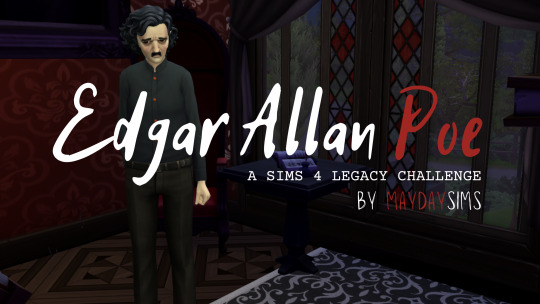
Welcome to the Edgar Allan Poe Legacy Challenge! I took his macabre, melancholy, and tormenting work and devised this challenge across ten generations.
Here is the link.
Please keep this mind that this is a Rated R legacy challenge. Poe’s work is a reflection of the tragedies in his life as well as the rejections he’s experienced and the addictions he struggled with.
I tried my best to note triggers prior to each generation.
If you're playing this challenge, please tag me!!
Generation One: "The Raven"
Triggers: infidelity, heartbreak, isolation, depression
While the other kids played in the sun and splashed in the mud, you spent your time happily clacking away on your typewriter and playing sonnets on your violin. Your parents worried that you weren’t socializing so they encouraged play dates.
You begrudgingly went to them until one day, you met Lenore, your raven-haired muse. (You don’t have to stick to the name Lenore).
Love blossomed quickly for you, until Lenore was suddenly gone from your life. This manifested your parent’s worst fear: you no longer socialized. They tried their hardest to get you to leave your room but they were met with haunting violin songs and frantic typing. As soon as you could, you moved out from their home to have even more isolation.
Aspiration: Bestselling Author
Traits: Gloomy, Creative, and Loner
Skills: Writing. At least level 4 in Painting and Violin.
Get a computer and join the Freelancer (Fighting Words) career as your sole source of income. Even odd jobs should be avoided unless you can do them from home. Remember, you want as little interaction with other people as possible.
Buy the Creative Visionary reward.
Write at least one book named after Lenore in some way.
Marry someone who reminds you of Lenore (doesn’t have to be the negative/sad/depressing parts- unless you want it to be!) Get creative with how you meet them. Have only one child (unless you get twins, etc.)
Optional: Start off in a grungy, dirty home. The only item you’re allowed to cheat is your computer so you can start writing.
If you use cc’s, you can decorate your home raven-themed.
Bring home random lovers who you call Lenore in bed. Have your spouse walk in on you cheating as much as you can.
Die of unnatural causes either a few days before or when your heir becomes a young adult.
Generation Two: "Annabel Lee"
Triggers: loss of spouse/parent
Your parents didn’t have the perfect marriage but it didn’t sour your understanding of love. You learned how to love them unconditionally, even if it meant being the parent of your parents at a young age. When you began to have romantic relationships, you always wore your heart on your sleeve. After graduating high school, you kissed your parents goodbye because you couldn’t deal with the gloom and doom of your childhood home anymore.
Aspiration: Soulmate
Traits: Romantic, choose/randomize the other two.
Skills: Parenting and Charisma.
Have several relationships throughout your teenage and young adult life. They can be as casual/loving/serious/etc. as you’d like.
Your career is completely up to you.
Meet the love of your life and move to somewhere by the sea.
Have at least two children. Be as present as you can in their lives, throwing incredible birthday parties, reading them to bed, and showering them with love.
Have your partner pass away before your first child reaches young adulthood.
Optional: Since your father was an acclaimed writer, you can start with a little extra money.
Have a bedroom specifically dedicated to your Annabel Lee that no one is allowed to go in but you. You can leave the urn there if you’d like.
If you remarry, they cannot know about the secret room.
Due to the graphic nature of the upcoming generations, I rather not post them on Tumblr. Instead, read the rest here.
This is my first ever challenge! Any comments, suggestions, and love notes are welcome in the askbox.
P.S. Please don't share this as your own or edit it to distribute as your own. I worked hard on this challenge and I hope that my wishes could be respected.
Thank you,
mayday 🌹
#sims 4#edgar allan poe legacy#sims 4 challenge#sims 4 legacy#sims 4 story#ts4 simblr#the sims#the sims community
6 notes
·
View notes
Text
Rhyming Poems: A Guide
Hi again everyone :))) Thanks for the amazing response on my previous post (Constructive Criticism: A Guide)....I'm still shook by how much it took off! Anyways, here's the latest edition of my writing advice column, all on the infamous rhyming poems <333 So sit back, grab a cuppa and let's delve into this notoriously tricky writing form.
Rhyming poems. We've all written them, generally in early primary school when we first read Dr Seuss. They seem like the most basic form of poetry; a clear structure and form that is easy to adapt! And throughout history, rhyme has left its mark on almost all of the iconic poetic works; whether it be the infamous Shakespearean Sonnet, the more modernist verse narratives or even simple nursery rhymes.
So despite rhyming poems being the first poems that almost all of us encounter, why are they so tricky to write??? Here are the main reasons (I've listed them here so when we talk about conquering the rhyming poem we can overcome these hurdles):
Rhyme limits the choice of words. Poetry as an art-form is EXTREMELY dependent on word choice, especially because so few are generally used (unless you are writing an epic). With rhyme, we can no longer have the freedom to choose what words fit....this makes it difficult to communicate a very specific and tailored message
Rhyme greatly influences the meter of a poem. While not all rhyming poems have to be as fixed of a form as sonnets (think iambic pentameter), there is definitely restriction of syllables, line length and verses in rhyming poems. This becomes even greater of a problem when rhyme schemes are introduced (think ABAB structures).
Rhyming is hard. This is perhaps the most obvious but greatest factor that deters poets from rhyme. It is hard! It's hard to rhyme and not sound like you are writing a clapping game. It's hard to rhyme and have a solid structure when you're delving into the fluid metaphysical. It's hard to create something stunning when you are so restricted!!
So with all these factors in mind, here are a few tips I've put together to make this writing form easier. Keep in mind, rhyme, like any other poetic device, is most effective when used in moderation! Be careful with how much you add! It's like sugar in a tea; some types taste good with entire spoonfuls while others require just a dash.
My biggest tip for rhyming poems is try not to close yourself in too early. Unless you have specific word pairs in mind, always try and end your lines (which are in the rhyme scheme) with easy-to-rhyme words. For example, instead of using "morning" , you might use "day". Of course this may seem like you are replacing sophisticated words for simpler ones but often these words are the ones that carry the most meaning and make your work accessible! You can also try for some nice metaphors to fit into these scheme.
Try and find rhyming pairs! Often when writing rhyme, it's hard to find suitable words that fit your message. Find words that rhyme and have a similar kind of 'vibe' BEFORE writing your verse to avoid this problem. For example, a key conceit in my upcoming sonnet is situated around the words "ebb" and "web".
Don't be afraid of half-rhyme! This is such a good way to get out of the 'clap game' trap that rhyming poems seem to fall into; it almost seems to break out of that strict form and allows you a bit of space to play. You can use half-rhyme if you have a key change in your poem or simply scatter it around to keep it fluid and moving. For example, Seamus Heaney (if you've read my other work, you'd know I'm obsessed with his stuff!) often uses half-rhyme in his Glanmore Sonnets as a subversion of the traditional Irish Sonnet. Half-rhyme also puts a modernist touch to the more traditional poetic forms :)
Finally, use all the tools at your disposal! I've seen so many 'professional' poets saying "Don't use free online rhyme programs" but imo that's just rubbish. EVERY POET USES EVERY TOOL AT THEIR DISPOSAL! I can say that from my own personal experience; I've published poems in some nice poetry magazines and I always use those dumb rhyme-zone tools to find the right words! They even have modes to find the "percentage" of rhyme so you can effectively utilise half-rhymes in your work as well. Don't discount these tools and don't feel like any less of a poet if you use them. THEY ARE DESIGNED FOR YOU; USE THEM!
So with that, I'll wrap up my rhyming poem guide. If I come up with any other tools, I'll add them and if you have any tricks, feel free to reblog and add as well :)) Rhyming poetry is hard and even if it doesn't work out quite as nicely as you intended, don't feel disheartened! It can take years of practise to master this form! But for now, happy crafting and feel free to share your work because I'd love to read it :) Re-blogs and likes are always warmly appreciated, as well as con-crit for my articles <3
Happy crafting,
Hics <3
#creative writing#words#inspiration#my writing#literature#poets on tumblr#writblr#writers#writers on tumblr#seamus heaney#writing advice#writing help#writing tips#writing resources#how to write#rhyme poem#poem#rhyming#hey that rhymes#idk how to tag this#writing problems#writing is hard#being a writer#artist problems#fanfic things#writing tools#art academia#light academia#chaotic academia#dark academia
52 notes
·
View notes
Text
@tagged by @sonnet-of-anarchy (thank you!!)
1. Are you named after anyone?
sort of, but it's more like my name was vaguely inspired by people rather than direct honours
2. When was the last time you cried?
i think a week ago
3. Do you have kids?
nope
4. Do you use sarcasm a lot?
not really, unless I know the person well, and know they're going to get that it's sarcasm?
5. What’s the first thing you notice about people?
irl, usually their clothes???
6. What’s your eye colour.
greyish
7. Scary movies or happy endings
happy endings I think
8. Any special talents?
not really - unless you count being able to have an anxiety attack without anyone noticing ;)
9. Where were you born?
uk, england if you want to be specific
10. What are your hobbies?
reading, writing, drawing, walking, collecting names
11. Have you got any pets?
i have eight guinea pigs (ben, brosie, pippa, peyton, otis, eddy, hattie and luna)
12. What sorts of sports do you play/ have played?
i used to swim before getting too ill, and now i can't really face going back to it. i did some trampolining briefly too.
13. How tall are you?
average height
14. Favourite subject in school?
English literature :)
15. Dream job?
those words don't go together in my head
I'll tag @thelastplantagenet, @natequarter and @mortalfollies if you wish to do this
6 notes
·
View notes
Text
You Don't Know What You Don't Know
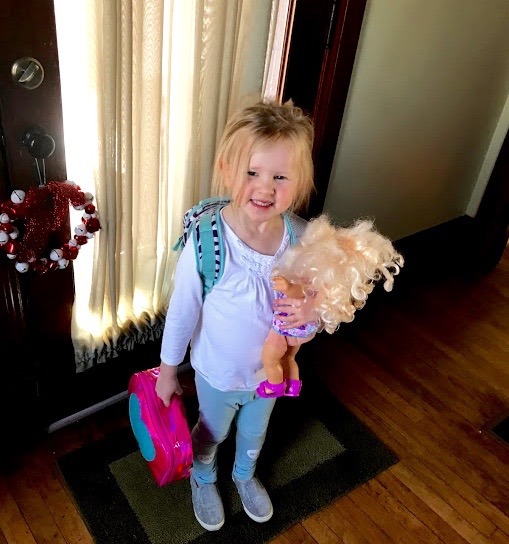
In today's information age, everyone's an expert. Broken dishwasher? Just YouTube it. Wondering who that actor is? IMDB it. Want a DIY chicken coop? Google it. Trying to find an unending stream of #fakenews and fear mongering? Log into Facebook. The problem is, well… we don't always know what the actual problem is. We see the symptoms. We know what we want—the end result—but we're not always sure how to get there. And a quick Google search is all we have the patience for before we jump to conclusions and then blame someone or something else for our failure. Take my recent plunge into fishkeeping, for example.
I've always been an animal lover. I think it's innate in all of us, but not everyone has the right disposition or upbringing to appreciate animal/plant husbandry. As for me, I grew up in the Missouri wilderness surrounded by ponds, cliffs, streams, fields, and forests. Sure, I spent my fair share of time on the Super Nintendo System, but being in the great outdoors was engrained in me from a young age. And more than that, I learned to appreciate the other things out there. I kept just about every animal you could imagine at one time or another (dogs, cats, birds, fish, lizards, frogs, newts, rodents of all varieties, snakes, chickens, geese, goats, a squirrel, a ferret, a raccoon, and even a short-tailed opossum, off the top of my head), and though I was pretty irresponsible with most of them (ignoring for a second that I should have just left them where I found them in nature), I loved nurturing them, and I kept most of them alive. So when my city-girl daughter said she wanted a fish for her fourth birthday, a little piece of my past reignited, and I… may have gone a little overboard.

First, my mom still had the 35-gallon aquarium she bought me for my birthday a couple of decades ago. Back then I just winged it. I didn't have Google. I didn't come from a long line of aquarists. I just filled the thing up with well water, a cheap bag of gravel, a log I found floating in my pond, and the cheapest fish I could find at my local Walmart (yes, Walmart sold fish back then). Of course the tank was full of algae and dead fish in no time, but I kept at it, and eventually I had a few fish that didn't eat each other, but ultimately it wasn't what I knew it could be, so I set the fish "free" in my pond and put a snake in the tank instead.
I used the tank again in college with similar results, only this time I had a filter, did occasional water changes, and had just a few friendly fish, so it was much more successful, though still very "low tech," as they say in the hobby. Since then, I've matured (please hold all sarcasm until the end), and I've learned the value of researching something before attempting it. The change started in physical therapy school when I spent countless hours dissecting and writing scientific papers. It was the literal worst, but it taught me so much about the world. Rather, it taught me how to learn about any particular aspect of the world. You see, in these classes, we weren't allowed to just read the abstract and regurgitate the experimenters' assumptions. We had to read every line, go back and read every line of the sources they cited, and then, once we understood every word, we could start forming our own opinions on the subject. And believe it or not, I rarely found a paper that wasn't skewed toward the writer's desired result in some small way.
So now we get to the heart of things—you don't know what you don't know until you know it. And you won't know it unless you put in the time. We're living in an age of instant gratification. Because there's so much information out there, we only have time to skim. Otherwise we wouldn't have any time to actually live. I recently ran across an inspiration quote by science fiction author Robert Heinlein's character, Lazarus Long:
"A human being should be able to change a diaper, plan an invasion, butcher a hog, conn a ship, design a building, write a sonnet, balance accounts, build a wall, set a bone, comfort the dying, take orders, give orders, cooperate, act alone, solve equations, analyze a new problem, pitch manure, program a computer, cook a tasty meal, fight efficiently, die gallantly. Specialization is for insects."
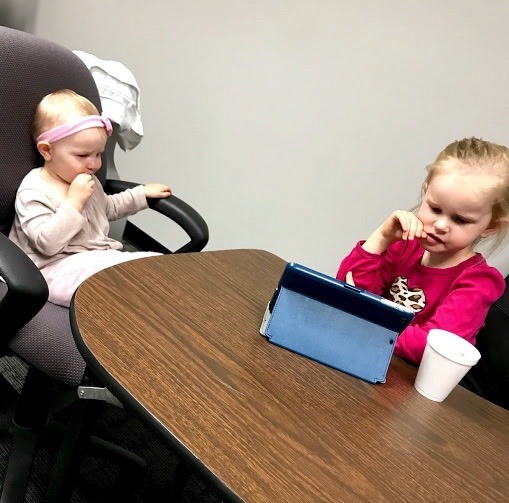
Sure. Easy for Lazarus to say. As his name suggests, he was over 200 years old and counting at the time of his above quotation (and that's to say nothing of Heinlein's, uh, colorful political and philosophical views). But even still, his words are a nice sentiment, and they resonate with our current zeitgeist. We all want to be experts at everything, but we just don't have the time to do it. So we become Jacks-of-all-trades, and masters of none. And thus, with the dehumanizing help of social media, we get into a lot of stupid fights.
But I digress. Back to my aquarium example. Giving in to my excitement and desire for my daughter to experience thy "joys" of fishkeeping, I reverted to the impulsiveness of my youth. And of the twelve fish I bought those first few months, I killed half of them. Why? Because I didn't take the time to learn about taking a new tank through the nitrogen cycle. I knew nothing of ammonium, nitrite, or nitrate. I didn't know how to promote bacterial colonies in the filter media. And when I decided to add a few live plants to the mix, I didn't know the difference between submersed and submerged, or that PetCo didn't care about selling you "aquatic" plants that would die 100% of the time if completely under water. And that's saying nothing about water pH, alkalinity, fertilizers (NPK, micronutrients, root tabs versus liquid fertilizers, etc), carbon (CO2) availability, substrate differences, etc., etc. I just thought, "these are pretty" with dozens of plants and fish from completely different, delicately balanced ecosystems around the world, and then expected them to flourish when crammed together in the petri dish that was my, er, my daughter's aquarium.
I'll be the first to say that I suck at chemistry. It was the only "C" I received in college. Too many dry facts and things I couldn't visualize. Too much like math. But over the past few months, I've forced myself to dig into the periodic table and the chemical processes of dozens of elements and compounds in order to BEGIN understanding the aquatic world. I'm still so far away from having a solid grasp on the process, but at least I now know what I don't know. And that's a start. And it's a valuable reminder of the ignorance of mankind.
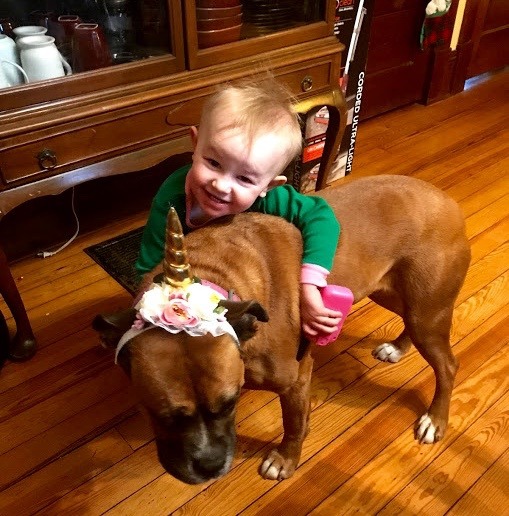
As a physical therapist, it often baffles me when my highly intelligent friends and family don't understand their own bodies. These people are experts in their fields. They're fluent in areas that I'll never even begin to understand. And yet, they can't figure out the simplest causes of their own various aches and pains. And thus, they become easy prey for fad diets, snake oils, and cure-alls. In health and fitness, especially, our connected, opinion-fueled society is playing the willing victim. Like politics and philosophy, we all know there are problems, and we see "experts" offering their solutions constantly, and social media algorithms are feeding into this problem by inundating our news feeds with like-minded (no matter how wrong) individuals. We think, "Hey, everything I see reinforces my ideas, so the must be right!" But really, we're still living in the same high-walled isolation we've always lived in. We just have weapons that can shoot farther now.
So remember, if you haven't spent hundreds of hours researching and forming your opinion, you're probably not right. Maybe you have an idea. It may even be a good idea. But life is complex. It spans millennia of philosophers, scientists, and soldiers. Even if WebMD says you have terminal cancer, you should still probably see an actual MD before you throw in the towel. Because, contrary to Lazarus Long's inspiring sentiment, humanity can still find value in specialization. Life is rich and deep, so take the time to dig.
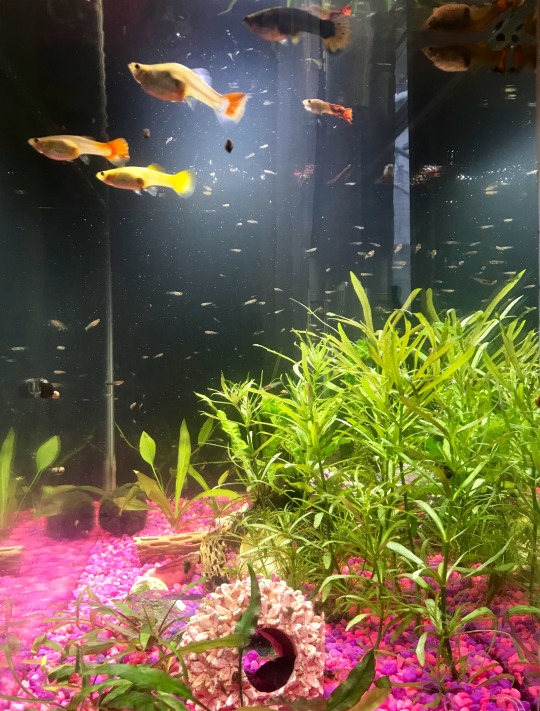
#fish tank#fish keeping#aquarium#aquarist#plantedtank#planted aquarium#chemistry#diversity#education#informed opinion#research#social media#ignorance#momblr#dadblr#mumblr#physical therapy#specialization#robert heinlein
49 notes
·
View notes